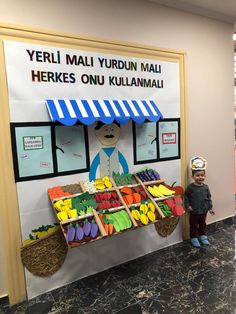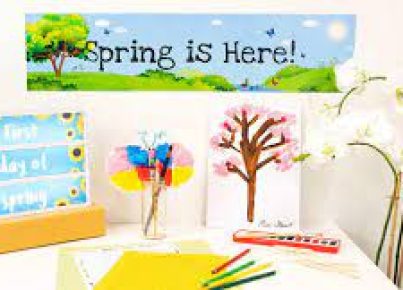The classroom is not just a place for traditional learning; it’s a hub of creativity and imagination, especially when it includes a Role Play Area like the Fruit and Vegetable Shop. This innovative educational tool goes beyond teaching basic concepts of commerce and nutrition, nurturing a plethora of skills in young learners.
Imagine stepping into a classroom and being greeted by the vibrant colors and enticing aromas of a miniature fruit and vegetable shop. Here, children don the hats of shopkeepers, customers, and even inventory managers. This seemingly simple setup is a powerhouse of educational experiences that contributes to the cognitive, social, and emotional development of students.
Cognitive Development: Counting apples isn’t merely an exercise in repetition. When children engage in buying and selling produce, they’re unknowingly sharpening their mathematical acumen. They learn to count, add, subtract, weigh, measure, sort, classify, problem-solve, and even handle money – all under the guise of play.
Social Skills: The Fruit and Vegetable Shop serves as a microcosm of society. It encourages children to interact with their peers through role-playing various social interactions. They learn to communicate effectively, negotiate prices, understand the importance of sharing and turn-taking, cooperate with each other to keep the shop running smoothly, and develop empathy by stepping into someone else’s shoes for a while.
Emotional Growth: As children role-play different scenarios within the Fruit and Vegetable Shop environment, they experience a range of emotions associated with real-world experiences. It could be excitement over buying their favorite fruit or coping with disappointment if it’s ‘out of stock.’ These experiences help them understand and manage their emotions better.
Health Education: Beyond the play aspect lies an excellent opportunity for teachers to embed lessons about healthy eating habits. As children handle various fruits and vegetables, they also learn about their nutritional value. The shop becomes an interactive platform for discussing how food choices impact health.
Creativity: A Role Play Area such as this is fertile ground for imagination. It doesn’t take much for a box of bananas to become a treasure chest or an orange to represent a ball in an impromptu game.
Responsibility: Assigning roles like cleaner or shelf-stocker instills a sense of responsibility in children. They learn that running a shop (or any cooperative endeavor) requires everyone’s contribution and adherence to certain rules.
Language Development: Vocabulary naturally blossoms as children name the various fruits and vegetables available at their shop. They create signs, price tags, advertisements, improving both written and oral language skills.
In conclusion, implementing a Fruit and Vegetable Shop as part of the classroom’s Role Play Area can transform conventional learning spaces into dynamic ecosystems conducive to holistic development. Children learn best when they are engaged actively with their entire being—mind, body, and heart—and what better way to ensure this than through imaginative play that staples nutrition education onto life skills? It turns out that an apple a day does much more than keep the doctor away; it opens up a world filled with learning opportunities ripe for exploration!





